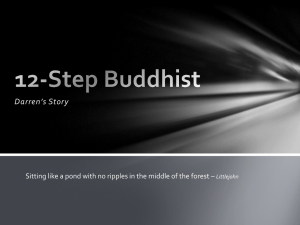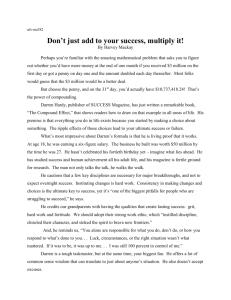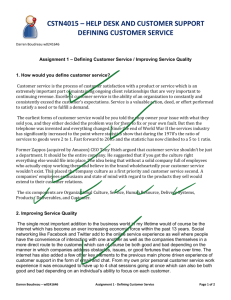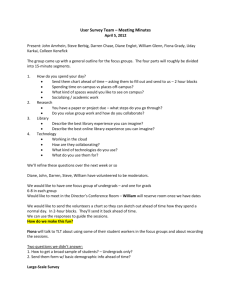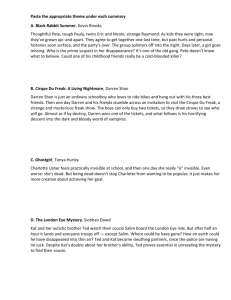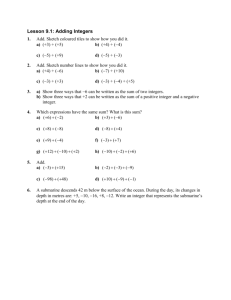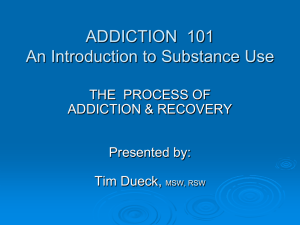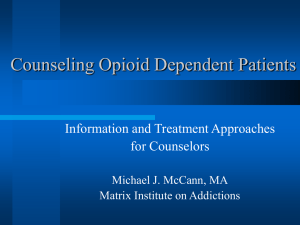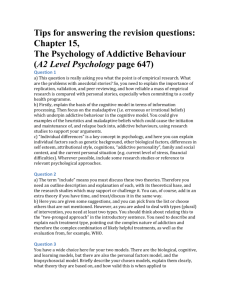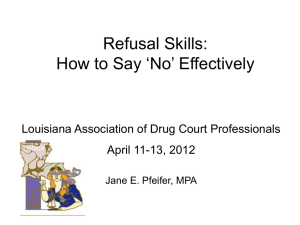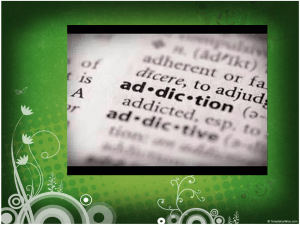The 12 Step Buddhist Lecture 1
advertisement
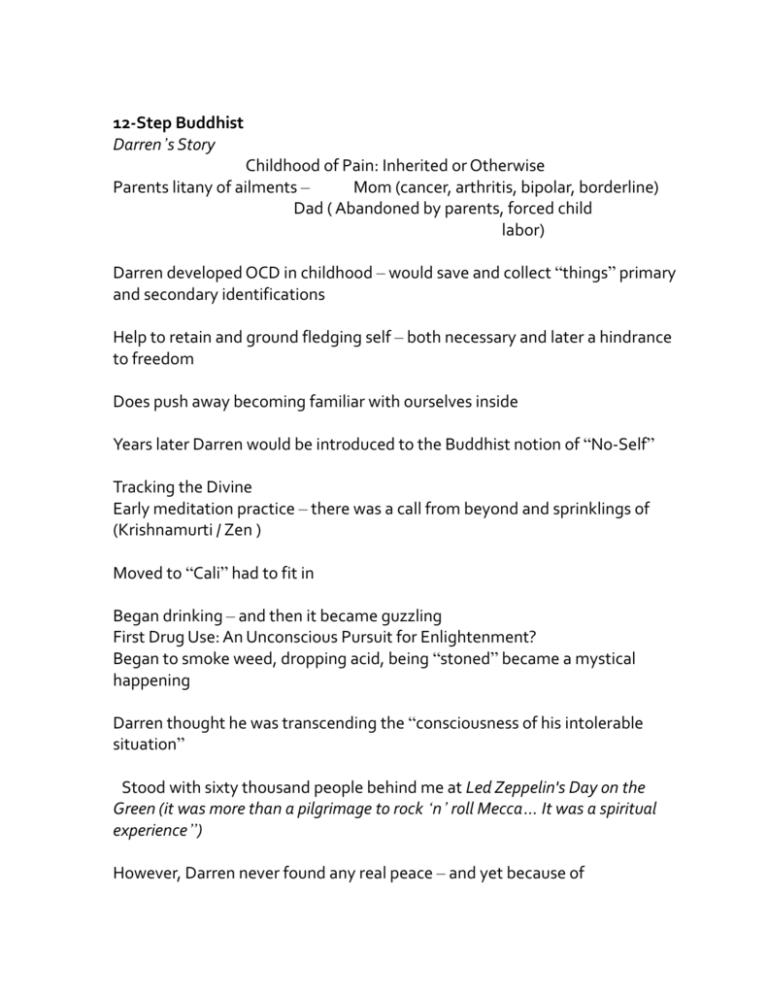
12-Step Buddhist Darren’s Story Childhood of Pain: Inherited or Otherwise Parents litany of ailments – Mom (cancer, arthritis, bipolar, borderline) Dad ( Abandoned by parents, forced child labor) Darren developed OCD in childhood – would save and collect “things” primary and secondary identifications Help to retain and ground fledging self – both necessary and later a hindrance to freedom Does push away becoming familiar with ourselves inside Years later Darren would be introduced to the Buddhist notion of “No-Self” Tracking the Divine Early meditation practice – there was a call from beyond and sprinklings of (Krishnamurti / Zen ) Moved to “Cali” had to fit in Began drinking – and then it became guzzling First Drug Use: An Unconscious Pursuit for Enlightenment? Began to smoke weed, dropping acid, being “stoned” became a mystical happening Darren thought he was transcending the “consciousness of his intolerable situation” Stood with sixty thousand people behind me at Led Zeppelin's Day on the Green (it was more than a pilgrimage to rock ‘n’ roll Mecca… It was a spiritual experience”) However, Darren never found any real peace – and yet because of hallucinogens - I had the knowledge that things aren’t what they appear to be Violent Interventions: Darkness Descends Drug use escalates “PCP use” Brother’s crude intervention both physically and psychologically – backfires Trauma of the beating(s) scarred Darren for years Parents charged for food stamp fraud Moves with brother – introduces him to blow – and the rides continues Sobriety v. 1.0 – Ten Years of AA Dove hard into AA and spirituality Married, child, work (real world) began college Relationship fallout again – psych program did not fill the inner seeker’s quest for… Completed three years of cognitive behavioral therapy Instead of pursuing spiritually further “got new psychiatrically challenged girlfriend” took some acid and dived into Zen Zen and the Art of Relapse First teacher – too simple Second teacher – took it seriously / partner relapsed (led to avenue with Third teacher “Joko Beck” real teacher; JB: “pay attention”; DL: “To what”? JB: “Oh, I don’t know, your eyebrow” Added a therapist to deal with emotional content arising from Zazen Relapse: Seduced By the Mind Thought I needed LSD to experience enlightenment – thought I could unravel the experiences of the universe through spirituality, therapy, graduate studies in psychology – still somewhat depressed And the drugs had not changed this pursuit either – Darren’s experience was that his pursuit of Zen or Buddhism was breaking the through the addiction Had his seeking become an addiction? Full blown relapse (ecstasy) – designer drugs / life completely falls apart / dope / job loss / drunk driving Sobriety V. 2.0 Joined manic depressive support group and during this time I stumbled upon a “Young People’s” 12-step meeting I have been sober ever since (1997) Diagnose with mental illness (bipolar, post-traumatic stress disorder, poly-substance abuse, impulse control, post-hallucinogenic perceptual disorder – plus a brain disease – called addiction While my 12-Step program is a vital part of my recovery and integral to my spiritual path, it alone is not enough. Have let go of meds one at a time This book is about how Darren learned to how work recovery (addiction and mental illness) through integrating the 12-steps, Zen, medicine, and developing a sense of community. 12-Steps What Works What Doesn’t Some of us are sicker than others 12 steps speak to a language Literature is written for about addicts Alienates people who do not believe in a Christian God 12-Steps What Works What Doesn’t Outliers are cast aside, neglected, and overlooked; any one who doesn't toe the 12-step party line is typically shunned low talkers high talkers non-equal power The real reasons for relapse with long-term sobriety are not discussed in meetings “people relapse because they stop going to meetings” no single cause for any phenomenon [dependent origination] Why People Relapse Undiagnosed and untreated mental illness Can't identify the others in the program Misunderstand the progression of the disease Limited career and educational development during recovery Confusion about long-term recovery [poor modeling] Childhood issues not dealt with in therapy or during early sobriety Failure to learn stress management Inadequate support to manage relapse symptoms in 12-step groups We Wish We Were Normal! “it's a lifetime illness” Identifying oneself as an addict is a “tool” not a “total identity”
